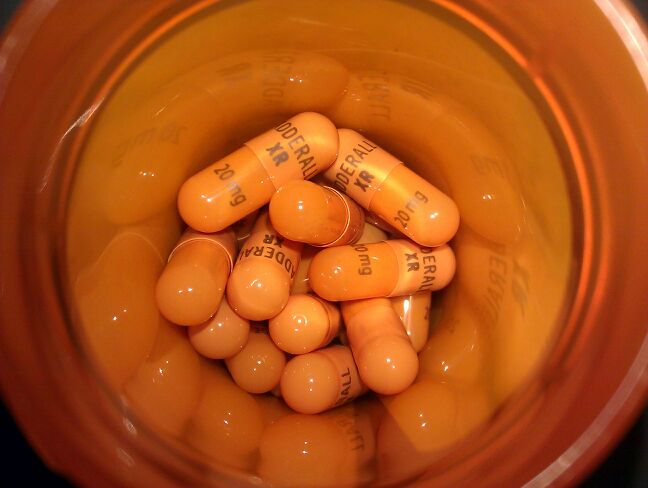Adderall: The Late-Night Study Drug And Its Abuse On Campus
From pulling all-nighters to consuming copious amounts of coffee, Pace students will do whatever it takes to buckle down for finals week. But one student remedy for speedy productivity may prove more of a hindrance than a help.
Amphetamine, more commonly known by its brand name Adderall or “Addys,” is a stimulant prescribed for the treatment of narcolepsy and attention deficit with hyperactivity disorder (ADHD). The drug works by chemically stimulating the parts of the brain that make an individual happy (serotonin, dopamine, and adrenaline), often leaving the consumer feeling more alert and capable of focusing, according to Business Insider.
Currently, Adderall can only legally be obtained with a doctor’s prescription. However, many individuals without medical need have been using the drug to assist in staying up late and focusing on work. Urban Dictionary defines the drug as “the only way to finish homework.”
“I actually don’t take it anymore, though I did in my more desperate, younger days,” admitted one Pace senior. “There are all kinds of ‘study drugs’ that I’m not very knowledgeable about.”
Students who used Adderall as a study enhancer
“It’s hard to describe because it’s not an overwhelming feeling,” said another Pace senior. “You know the voice inside your head that tells you to slack off and go on Facebook? It gets rid of that and keeps you focused and legitimately interested in what you’re doing.”
The same student admitted that when taken too late in the day, the drug had the potential to prevent an individual from being able to fall asleep, but this was not the only drawback that students acknowledged.
“I took [Adderall] so that I could study intensely all night for an exam,” said an anonymous Pace senior. “It is addictive and you can easily get hooked. I only took it twice because I was scared of getting addicted.”
The side effects of this nervous system stimulant include anxiety, elevated heart rate and blood pressure, and dependency, the risks of which are heightened without medical supervision.
“If it’s not prescribed to you, it causes you to not focus as well and have heart palpitations,” said junior applied psychology major Holly Berlandy. “It’s also highly addictive, which is why you shouldn’t take it if you don’t have a doctor’s permission.”
Students are strongly cautioned not to ingest any prescription medication without the consent of a physician, and advised to use healthier methods of accomplishing work.
Breaking up large amounts of work into smaller portions over time can ease the stress of larger assignments at the end of the semester. Eating healthy, keeping active, and getting adequate sleep are all recommended for finishing finals in good health.
Your donation supports independent, student-run journalism at Pace University. Support the Pace Chronicle to help cover publishing costs.

